magnolin
Synonym(s):(+)-Magnolin;(1S,3aR,4S,6aR)-1-(3,4-Dimethoxyphenyl)tetrahydro-4-(3,4,5-trimethoxyphenyl)-1H,3H-furo[3,4-c]furan;(1S,3aR,4S,6aR)-1-(3,4-Dimethoxyphenyl)tetrahydro-4-(3,4,5-trimethoxyphenyl)-1H,3H-furo[3,4-c]furan;Magnolin;Medioresinol dimethyl ether
- CAS NO.:31008-18-1
- Empirical Formula: C23H28O7
- Molecular Weight: 416.46
- MDL number: MFCD07783722
- EINECS: 202-110-6
- SAFETY DATA SHEET (SDS)
- Update Date: 2025-12-26 12:07:08
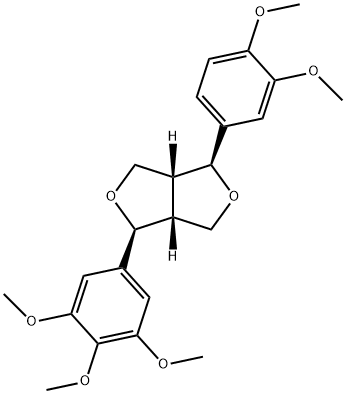
What is magnolin?
Description
Magnolin, a major component of Magnolia flos (Shin-Yi), inhibits the Ras/ERKs/RSK2 signaling axis by targeting the active pocket of ERK1 and ERK2 with IC50s of 87 nM and 16.5 nM, respectively.
The Uses of magnolin
Magnolin is a lignan extract from Magnoliae Flos, displaying anti-asthma and anti-inflammatory activity.
in vitro
Magnolin is a natural compound abundantly found in Magnolia flos, which has been traditionally used in oriental medicine to treat headaches, nasal congestion and anti-inflammatory reactions. Magnolin targets the active pockets of ERK1 and ERK2, which are important signaling molecules in cancer cell metastasis. Magnolin inhibits NF-κB transactivation activity by suppressing the ERKs/RSK2 signaling pathway. Magnolin inhibits the production of tumor necrosis factor-α (TNF-α) and prostaglandin E2 (PGE2) by inhibiting extracellular signal-regulated kinases (ERKs), which are key signaling molecules in the regulation of cell proliferation, transformation and cancer cell metastasis. JB6 Cl41 cell migration enhanced by EGF treatment is dramatically suppressed by Magnolin treatment in a dose-dependent manner. Magnolin inhibits ERK1/2/RSK2 signaling-mediated IκBα phosphorylation at Ser32, resulting in the inhibition of NF-κB activation and cell migration.
Properties of magnolin
| Melting point: | 91.4-92.9 °C |
| Boiling point: | 536.9±50.0 °C(Predicted) |
| Density | 1.178±0.06 g/cm3(Predicted) |
| storage temp. | under inert gas (nitrogen or Argon) at 2–8 °C |
| solubility | Chloroform (Slightly), Ethyl Acetate (Slightly) |
| form | Solid |
| color | White to Off-White |
Safety information for magnolin
| Signal word | Warning |
| Pictogram(s) |
 Exclamation Mark Irritant GHS07 |
| GHS Hazard Statements |
H315:Skin corrosion/irritation H319:Serious eye damage/eye irritation H335:Specific target organ toxicity, single exposure;Respiratory tract irritation |
| Precautionary Statement Codes |
P261:Avoid breathing dust/fume/gas/mist/vapours/spray. P305+P351+P338:IF IN EYES: Rinse cautiously with water for several minutes. Remove contact lenses, if present and easy to do. Continuerinsing. |
Computed Descriptors for magnolin
New Products
4,4-Difluoropiperidine hydrochloride tert-butyl 9-methoxy-3-azaspiro[5.5]undecane-3-carboxylate Indole Methyl Resin N-Isopropylurea N,N-Dicyclohexylcarbodiimide(DCC) MELDRUMS ACID 5-METHYLISOXAZOLE-4-CARBOXYLIC ACID Magnessium Bis glycinate Zinc ascorbate 1-bromo-2-butyne 2-acetamidophenol 9(10H)-anthracenone Erythrosin B, 4-Piperidinopiperidine 2-((4-morpholinophenylamino) (methylthio) methylene) malononitrile 2,4-dihydroxybenzaldehyde 3-(4-morpholinophenylamino)-5-amino-1H-pyrazole-4-carbonitrile Methyl 2-methylquinoline-6-carboxylate 2,6-dichloro-4-nitropyridine 4-Bromo-2-chlorobenzonitrile 2-(benzylamino)acetic acid hydrochloride 4-(tert-Butoxycarbonylamino)but- 2-ynoic acid 3,4-dihydro-2H-benzo[b][1,4]dioxepine 1-Phenyl-1-cycloprppanecarboxylicacidRelated products of tetrahydrofuran
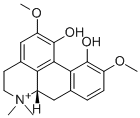
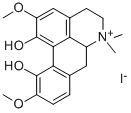
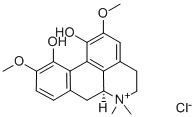
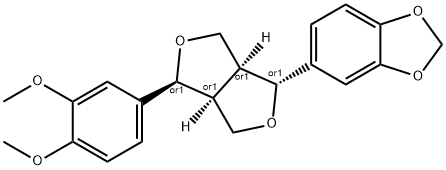
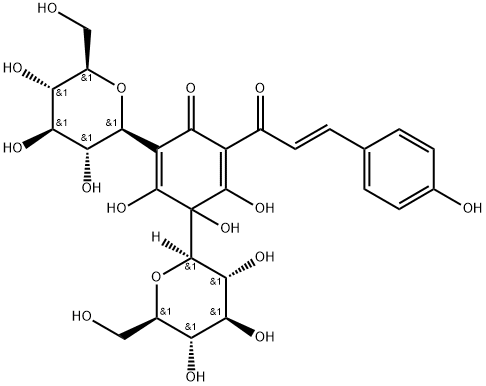
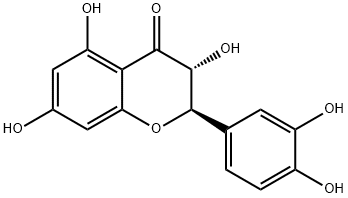
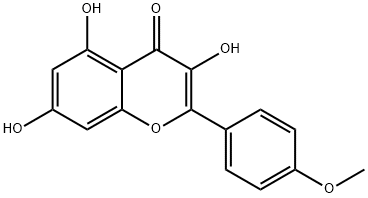
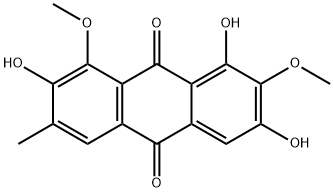
You may like
-
 Magnolin 98% (HPLC) CAS 31008-18-1View Details
Magnolin 98% (HPLC) CAS 31008-18-1View Details
31008-18-1 -
 3-(4-amino-1-oxoisoindolin-2-yl)-1-methylpiperidine-2,6-dione 98%View Details
3-(4-amino-1-oxoisoindolin-2-yl)-1-methylpiperidine-2,6-dione 98%View Details -
 614-19-7 98%View Details
614-19-7 98%View Details
614-19-7 -
 3112-85-4 Methyl phenyl sulfone 98%View Details
3112-85-4 Methyl phenyl sulfone 98%View Details
3112-85-4 -
 20677-73-0 (2,2-diethoxyethyl)methylamine 98%View Details
20677-73-0 (2,2-diethoxyethyl)methylamine 98%View Details
20677-73-0 -
 3-(4-(hydroxyamino)-1-oxoisoindolin-2-yl)piperidine-2,6-dione 98%View Details
3-(4-(hydroxyamino)-1-oxoisoindolin-2-yl)piperidine-2,6-dione 98%View Details -
 57381-49-4 2-bromo-4-chlorobenzonitrile 98%View Details
57381-49-4 2-bromo-4-chlorobenzonitrile 98%View Details
57381-49-4 -
 4,6-dichloropyrimidine-5-carbaldehyde 98%View Details
4,6-dichloropyrimidine-5-carbaldehyde 98%View Details
5305-40-8
